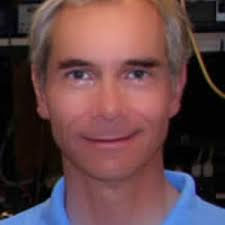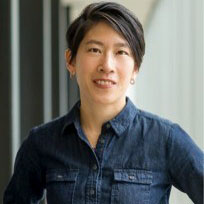Three TREE Awardees Named for 2018

Research Corporation for Science Advancement (RCSA) has named three Cottrell Scholar TREE Award recipients for 2018.
TREE stands for Transformational Research and Excellence in Education. “TREE awards recognize the outstanding research and educational accomplishments of the community of Cottrell Scholars,” said RCSA Senior Program Director Silvia Ronco. She added, “The awards serve to encourage the improvement of science education at American universities and colleges.”
The 2018 recipients are:
- Martin Gruebele, James R. Eiszner Endowed Chair in Chemistry and Head, Department of Chemistry, University of Illinois, Urbana-Champaign;
- Teri W. Odom, Charles E. and Emma H. Morrison Professor of Chemistry, Northwestern University;
- George C. Shields, Professor of Chemistry and Vice President for Academic Affairs and Provost, Furman University.
Gruebele was named a Cottrell Scholar in 1995; Odom received the honor in 2005; and Shields was recognized in 1994. The Cottrell Scholar (CS) program, supported by RCSA, champions the very best early career teacher-scholars in chemistry, physics and astronomy by providing significant discretionary awards for research. Scholars are eligible for additional competitive career awards, including the TREE Award.
 Gruebele is one of the most influential experimentalists in the field of physical chemistry. He has revolutionized our understanding of the way in which protein molecules and RNA fold up; he has developed innovative spectroscopic methods to reveal how vibrational energy flows within molecules; and he has made important advances in room temperature single molecule absorption spectroscopy. He has also made important contributions to the direct imaging of glass dynamics, the dynamics of proteins within living cells, and the analysis of the swimming behavior of zebrafish larvae. Gruebele has also made a number of important contributions as a teacher. He been a leader in a partnership between the University of Illinois and the Hanoi University of Science (part of Vietnam National University) to enhance chemistry education in Vietnam. Gruebele has worked onsite with Vietnamese faculty to improve their curriculum, to incorporate pedagogic aids as chemical demonstrations into their teaching, and to make other needed changes to increase student participation and learning. He has participated in summer schools around the globe and in outreach programs that train teachers, students interested in becoming teachers, as well as students from the K-12 level.
Gruebele is one of the most influential experimentalists in the field of physical chemistry. He has revolutionized our understanding of the way in which protein molecules and RNA fold up; he has developed innovative spectroscopic methods to reveal how vibrational energy flows within molecules; and he has made important advances in room temperature single molecule absorption spectroscopy. He has also made important contributions to the direct imaging of glass dynamics, the dynamics of proteins within living cells, and the analysis of the swimming behavior of zebrafish larvae. Gruebele has also made a number of important contributions as a teacher. He been a leader in a partnership between the University of Illinois and the Hanoi University of Science (part of Vietnam National University) to enhance chemistry education in Vietnam. Gruebele has worked onsite with Vietnamese faculty to improve their curriculum, to incorporate pedagogic aids as chemical demonstrations into their teaching, and to make other needed changes to increase student participation and learning. He has participated in summer schools around the globe and in outreach programs that train teachers, students interested in becoming teachers, as well as students from the K-12 level.
 Odom a renaissance scientist known for her design of anisotropic and multi-scale nanomaterials as well as her invention of key nanoscale patterning methods. Her research focuses on controlling materials at the 100-nm scale and investigating their size, shape, and materials-dependent properties. She has pioneered multi-scale nanofabrication techniques to create hierarchical plasmonic structures, which have enabled her not only to resolve long-standing controversies in plasmonics but also to discover structures with exceptional optical properties. Most recently, she invented wrinkle lithography to control order and disorder over multiple length and used concurrent design and machine learning to identify wrinkle dimensions for quasi-photonic random nanostructures with specific light-trapping properties. As a teacher, Odom is dedicated to mentoring as well as innovations in student learning. She has contributed content and experiments to NSF Materials World Modules, where middle- and high-school students are trained by inquiry and design-based learning in a range of areas. For the past two years, she was the only chemistry professor selected by Northwestern’s Associated Student Government (ASG) to the Faculty Honor Roll. Her students developed Ted-Ed-like videos such as “What Color is Gold?” and her teaching innovations in freshmen-designed videos on nanoscience have been highlighted by Digital Learning at Northwestern.
Odom a renaissance scientist known for her design of anisotropic and multi-scale nanomaterials as well as her invention of key nanoscale patterning methods. Her research focuses on controlling materials at the 100-nm scale and investigating their size, shape, and materials-dependent properties. She has pioneered multi-scale nanofabrication techniques to create hierarchical plasmonic structures, which have enabled her not only to resolve long-standing controversies in plasmonics but also to discover structures with exceptional optical properties. Most recently, she invented wrinkle lithography to control order and disorder over multiple length and used concurrent design and machine learning to identify wrinkle dimensions for quasi-photonic random nanostructures with specific light-trapping properties. As a teacher, Odom is dedicated to mentoring as well as innovations in student learning. She has contributed content and experiments to NSF Materials World Modules, where middle- and high-school students are trained by inquiry and design-based learning in a range of areas. For the past two years, she was the only chemistry professor selected by Northwestern’s Associated Student Government (ASG) to the Faculty Honor Roll. Her students developed Ted-Ed-like videos such as “What Color is Gold?” and her teaching innovations in freshmen-designed videos on nanoscience have been highlighted by Digital Learning at Northwestern.
![]()
 Shields has made significant research contributions dating back to his postdoctoral work on DNA/protein binding. He has published influential work on aqueous salvation, drug design, pKa calculations, water clusters, and atmospheric chemistry -- all while he was serving in leadership roles at five outstanding undergraduate institutions. His research employs computational methods applied to scientific problems ranging from fundamental questions (i.e., structure of water clusters) to cutting-edge biochemistry such as the development of anti-tumor agents, for which he has received two patents. CRC Press published a book jointly written by Shieldse and Paul Seybold (Wright State) in 2014 highlighting Shields' lab contributions to pKa calculations. As a teacher Shields has mentored 114 undergraduates to date, with 56 of his 87 peer-reviewed publications including undergraduate co-authors. He has spread his passion for undergraduate research nationally, mentoring faculty in his own field through a consortium of computational chemists at primarily undergraduate institutions (PUIs). In 2000, he founded the Molecular Education and Research Consortium in Undergraduate computational chemistRY (MERCURY), currently consisting of 27 computational chemistry faculty from 25 PUIs and supported by a total of six MRI awards. Shields started MERCURY by seeking out a diverse set of faculty (seven women and six minorities) who have in turn served as role models at their own schools and mentored a diverse set of students (55 percent women/34 percent minorities).
Shields has made significant research contributions dating back to his postdoctoral work on DNA/protein binding. He has published influential work on aqueous salvation, drug design, pKa calculations, water clusters, and atmospheric chemistry -- all while he was serving in leadership roles at five outstanding undergraduate institutions. His research employs computational methods applied to scientific problems ranging from fundamental questions (i.e., structure of water clusters) to cutting-edge biochemistry such as the development of anti-tumor agents, for which he has received two patents. CRC Press published a book jointly written by Shieldse and Paul Seybold (Wright State) in 2014 highlighting Shields' lab contributions to pKa calculations. As a teacher Shields has mentored 114 undergraduates to date, with 56 of his 87 peer-reviewed publications including undergraduate co-authors. He has spread his passion for undergraduate research nationally, mentoring faculty in his own field through a consortium of computational chemists at primarily undergraduate institutions (PUIs). In 2000, he founded the Molecular Education and Research Consortium in Undergraduate computational chemistRY (MERCURY), currently consisting of 27 computational chemistry faculty from 25 PUIs and supported by a total of six MRI awards. Shields started MERCURY by seeking out a diverse set of faculty (seven women and six minorities) who have in turn served as role models at their own schools and mentored a diverse set of students (55 percent women/34 percent minorities).
The TREE Award consists of an unrestricted $20,000 award sent to the awardee’s institution on behalf of the recipient’s educational and scholarly work. The recipient is encouraged to use these funds to foster advancement in his or her research and educational accomplishments. An additional $5,000 award is provided to the recipient to support lectures and travel to other institutions to help broadly communicate innovative research and educational accomplishments





